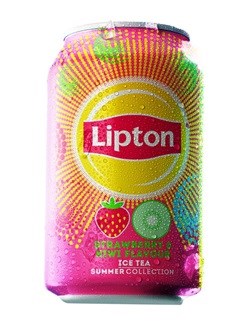
The Department of Health (DoH) is focused on reducing excessive consumption of sugar and salt. Salt reduction legislation is already in effect and the imminent introduction of sugar tax on sugar-sweetened drinks is on the horizon. These legislations aim to reduce NCDs such as hypertension and strokes caused by excessive salt consumption; as well as diabetes, obesity, and poor nutrition as a result of too much sugar in the diet.
“While government, consumers and industry bodies have an important role to play in ensuring food safety and quality, it is the food producers who are ultimately responsible for implementing food control legislation,” says Pioneer business executive, Martin Neethling.
“This requires significant investment in resources and continuous oversight of the manufacture and processing of foods from raw materials to the finished product on the retail shelves.”
In terms of the Pioneer Foods' portfolio of products, low-sugar recipe innovations are continually being developed and implemented. Lipton’s Ice Tea has already introduced four limited edition new variants to the range with a 30% sugar reduction, while brands such as Ceres Nectar and Ceres Squash, have introduced options with reductions of between 40 and 60% in sugar.
The sugar content is partially replaced with non-nutritive sweeteners, approved by the World Health Organization. The Ceres fruit juice brand recently introduced a new product containing 60% fruit juice diluted with 40% water, branded as Ceres Swirl, to offer consumers both the health benefits of fresh fruit with less sugar per pack.
Portion control is another initiative that Pioneer has introduced by offering reduced pack sizes for a number of products, thereby helping consumers reduce their kilojoule intake. This initiative is ongoing with additional pack size reductions planned during the next few months.
The objective of the salt reduction legislation, which became effective in June 2016, is to reduce the amount of salt used in the production of bread, butter, margarine, cereals and processed meat. “At Pioneer, we started working on this process two years ago, reducing the amount of salt used gradually to allow consumers’ palates to adjust. We achieved a 15% salt reduction in our bread in 2016 and all our breads and cereals are compliant with the 2016 targets and most of these products are already compliant with the 2019 target for salt reduction,” says Neethling.
“Our business has a vested interest in supporting a healthy productive society. In addition to providing health and nutrition, food forms an integral part of the culture and social fabric of our communities. Our consumers have strong preferences about the foods they eat and we are committed to offering a diverse range of high quality, safe and nutritious food products that cater for a wide variety of tastes.
“We believe in open and transparent communication and we will continue to engage with our consumers and advise them of any changes to our products so that they can make their own informed decisions for a healthy lifestyle,” concludes Neethling.